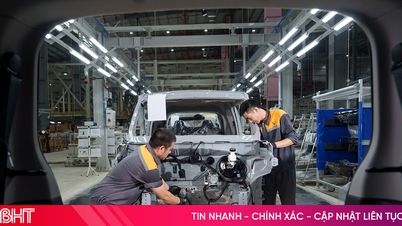
In a recent comment on the East Asia Forum website (eastasiaforum.org), Faizal Bin Yahya, senior research fellow at the Institute of Policy Studies at the Lee Kuan Yew School of Public Policy, National University of Singapore, said that the era of digital automation and artificial intelligence (AI) is reshaping the global labor market.
In Southeast Asia, however, the reception to this technology is optimistic and measured. Fears that automation will lead to mass layoffs are unlikely to happen immediately. Instead, companies in the region are adopting digital technology in ways that complement workers, aiming for a realistic and controlled transformation path.
Gradual impact and polarization of the labor market
Despite predictions of a profound shift in the structure of employment, experts stress that the impact of automation will be gradual and will vary across companies, regions and industries. The World Economic Forum’s (WEF) Future of Jobs report predicts that by 2025, AI will displace 85 million jobs globally but simultaneously create 97 million new ones.
This process is set against a backdrop of new technologies disrupting existing industries and creating new ones. The transition requires proactive measures to mitigate negative impacts, especially for low-skilled workers, as routine, low-skilled jobs are more easily automated. Conversely, jobs requiring complex cognitive skills and social interactions are less vulnerable to digital automation, potentially leading to a polarization of the labor market.
Industries like manufacturing, transportation, retail, customer service, and highly predictable tasks (data entry, assembly lines) will be the first to be automated. However, a 2025 study of more than 5,000 customer support agents found that AI tools helped employees resolve 14% more issues per hour. Notably, entry-level and low-skilled employees saw a 34% improvement in performance when assisted by AI.
The prevailing view in Southeast Asia is that digital automation does not replace entire jobs, but instead AI tools automate specific tasks. This frees up human workers to focus on more complex, higher-value activities. AI acts as a “co-pilot,” providing real-time information, recommendations, or analysis to help humans perform tasks more efficiently and effectively.
Addressing the challenges posed by digital automation requires a proactive approach focused on upskilling, retraining and ensuring the reliability of social safety nets, especially for low-skilled workers.
Thoughtful Technology Integration in Southeast Asia
A 2023–2024 survey of 2,326 manufacturing and related companies in seven Southeast Asian countries (Singapore, Cambodia, Laos, Vietnam, Indonesia, Malaysia, Philippines) found that digital technologies have become an integral part of their operations. Companies are adopting these technologies at different rates to increase efficiency, expand production scale and improve services, reflecting differences in industrial structure and technological capabilities.
In Singapore, digital automation integration has been widely implemented. Specifically, 69.7% of Singapore-based companies have automated up to 25% of their business processes, and all have adopted at least some form of automation. Furthermore, 55% of Singapore businesses reported digitizing their service delivery, indicating a priority for customer-centric technology upgrades.
Businesses are moving from readiness to implementation: 63.5% of Singaporean businesses surveyed plan to automate 11–50% of their business processes. Meanwhile, businesses in Laos and Vietnam are planning to increase their digital automation levels to 25%. In contrast, 38.8% of Cambodian businesses and 31.7% of Malaysian businesses are aiming for medium to high levels of digital automation (51–99%). Indonesia has 22.2% of businesses planning to automate fully.
Southeast Asian companies have different but generally optimistic views on the potential impact of automation on employment. Singaporean (40.3%) and Vietnamese (34.4%) companies largely expect automation to have a limited impact on employment, predicting no change. This balanced view suggests that digital automation is seen as a complement to, rather than a replacement for, human resources.
Indonesian (47.4%) and Malaysian (36.3%) companies were even more optimistic, expecting automation to bring job growth. The Philippines was the exception, with 68.3% of businesses expecting a decline in employment, indicating greater concerns about labor displacement.
Overall across Southeast Asia, optimism points to a gradual but steady trajectory towards more digital, efficient and sustainable automated business operations.
Source: https://baotintuc.vn/phan-tichnhan-dinh/tu-dong-hoa-ky-thuat-so-giup-dong-nam-a-but-pha-trong-cuoc-cach-mang-viec-lam-20251007171552077.htm




![[Photo] Prime Minister Pham Minh Chinh chairs the 16th meeting of the National Steering Committee on combating illegal fishing.](https://vphoto.vietnam.vn/thumb/1200x675/vietnam/resource/IMAGE/2025/10/07/1759848378556_dsc-9253-jpg.webp)





















![[Photo] Super harvest moon shines brightly on Mid-Autumn Festival night around the world](https://vphoto.vietnam.vn/thumb/1200x675/vietnam/resource/IMAGE/2025/10/07/1759816565798_1759814567021-jpg.webp)





































































Comment (0)